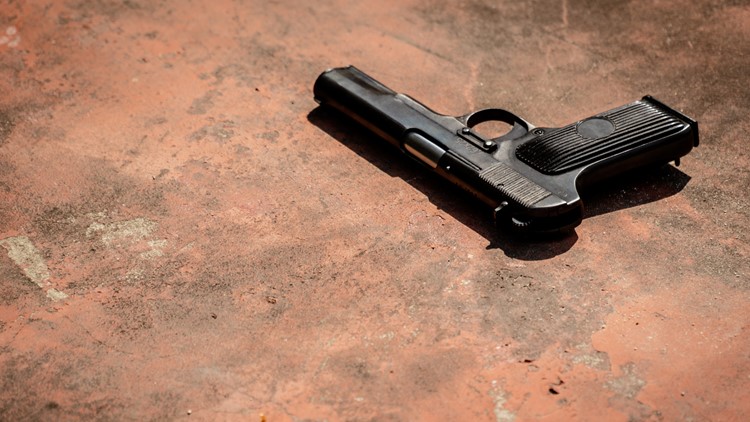BATON ROUGE, La. — A Senate committee voted 4-1 Tuesday to forward a bill that would designate possession of a firearm by a person convicted of a felony as a crime of violence.
Currently, the minimum sentence for possession of a firearm by a convicted felon is 5 years. Changing the possession of a firearm by a felon to a crime of violence would ensure harsher penalties, such as lengthier jail sentences.
Mike Ronats, executive director of the Louisiana Sheriff’s Association, cited statistics showing that between 25% and 48% of murders involving firearms are committed by felons.
According to the Louisiana Commission on Law Enforcement, there were 436 homicides committed with firearms in the state in 2018. This means between 109 and 210 of the murders were committed by felons.
“The decision that we make today is not just about this crime,” Ronats told the Senate Committee on the Judiciary C. He added: “It’s about how that crime affects the other crime, the larger picture, and that being homicide.”
Sheriff Mike Tregg of St. John the Baptist Parish is also a proponent of the bill, which was proposed by Sen. Bodi White, R-Baton Rouge.
“I have too many young men dying,” Tregg said. “I intercept their social media. They’re fascinated with guns. Children, 15 years old. I’m only here today to ask you guys to strengthen what we’re doing so we can send a message before they commit that crime.”
Sen. Troy Carter, D-New Orleans, opposed the bill, stating that it was “chipping away at criminal justice reform.” Carter also questioned its urgency, saying violent crimes have gone down and that the bill would add to the state’s corrections costs.
“We are going to be facing undoubtedly an unprecedented deficit because we have so many unknowns,” Carter said.
Public Defender Rami Starnes also raised concerns about the bill. “What this will likely mean is more trials,” Starnes said. “This is another example of criminal justice legislation that does not take into account the fiscal impact of the public defender.”
Carter also noted that with the spread of COVID-19, it is important to keep prison populations as low as possible.
The opponents said passage of the bill would mark a step back from the 2017 criminal justice reform, which was created to reduce Louisiana’s incarceration rate and save the state $262 million in spending over 10 years.
The bill would still need to be approved by the full Senate and the House and signed by the governor to become law.
► Get breaking news from your neighborhood delivered directly to you by downloading the new FREE WWL-TV News app now in the IOS App Store or Google Play.



